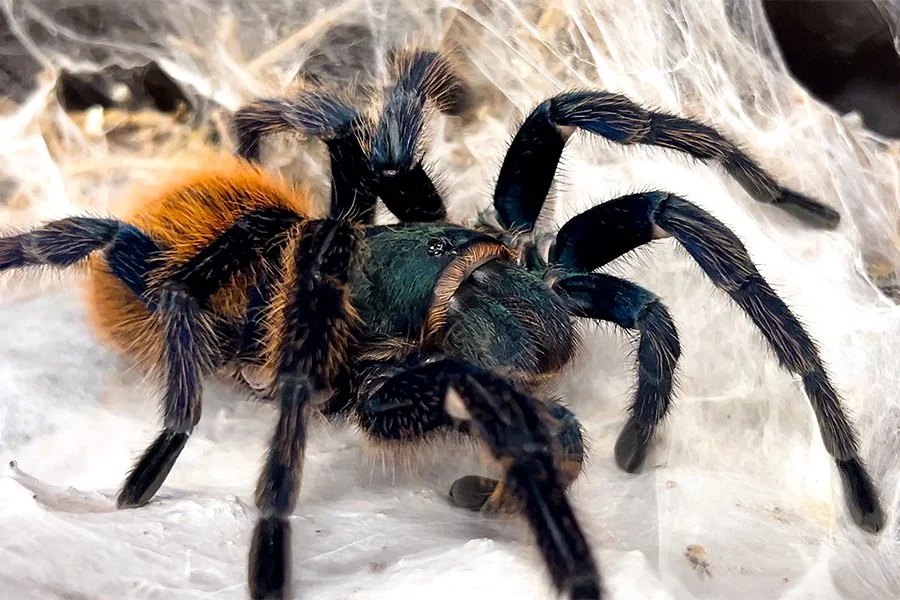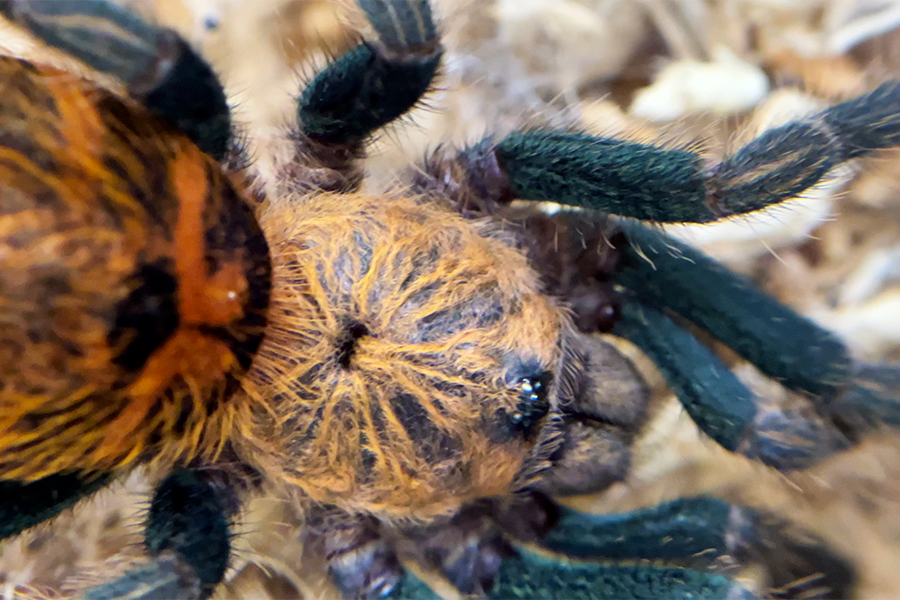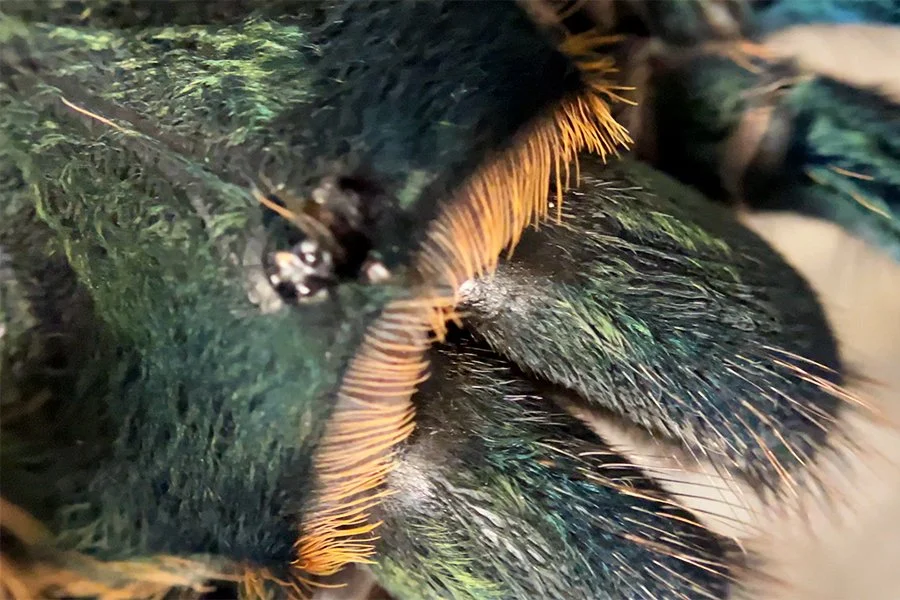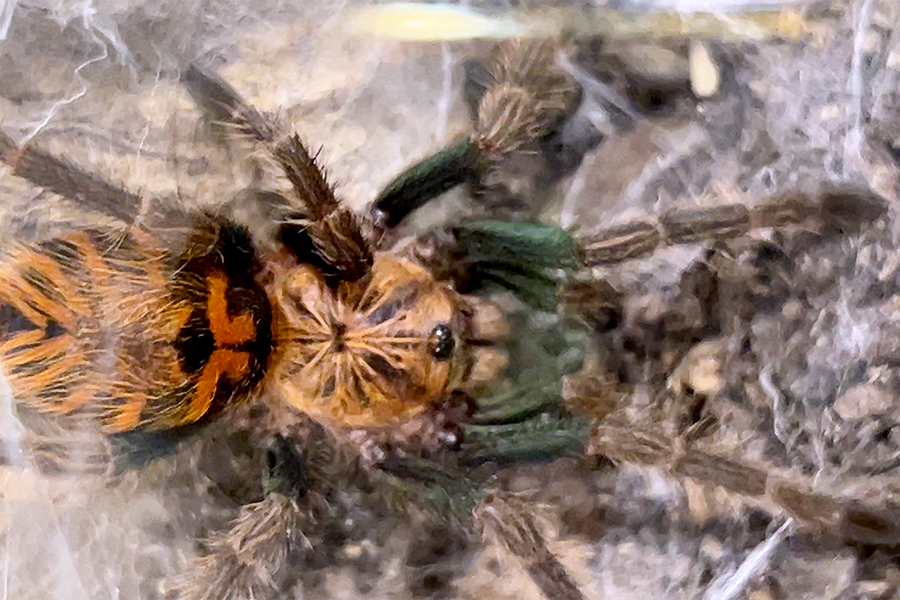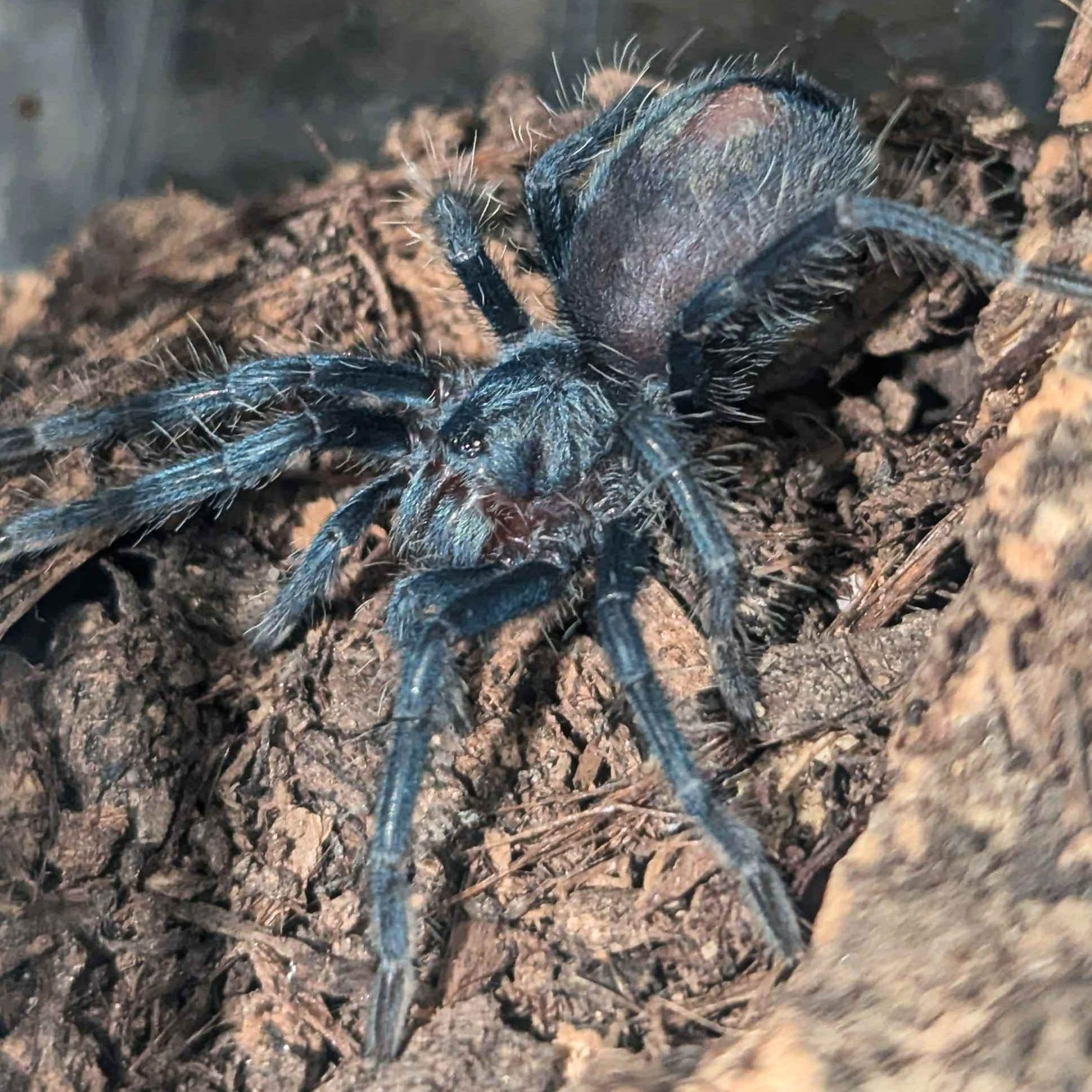What's the ideal diet for a Costa Rican Orange Mouth Tarantula?
All Tarantulas can eat a variety of feeders. Stick to crickets, dubia roaches, silkworms, horned worms occasionally, and a superworm or mealworm as the occasional treat!
How should I keep a Costa Rican Orange Mouth Tarantula?
For this particular creature, you can start with the small Arboreal Bliss enclosure, and when they get to be about ⅓ the size, you will want to upgrade to the medium or large Arboreal Bliss enclosure. Feed them as slings once a week, twice if their opisthosoma (abdomen) looks small, but if the opisthosoma is wider than their prosoma (cephalothorax), then wait a couple of days to feed. For juveniles or adults, stick to feeding once a week, nothing larger than their opisthosoma. Make sure to keep a full water dish at all times; wider and deeper is preferred.
How long could a Costa Rican Orange Mouth Tarantula live?
Females are believed to live upwards of 12+ years, and males not exceeding around 4 years of age. All estimates are based on multiple sources.
Some photos provided by iNaturalist, credit to:
Thibaud Aronson, some rights reserved (CC BY-SA)
Nick Tobler (Cowturtle), some rights reserved (CC BY)
Derek Spencer, some rights reserved (CC BY)
Lukas Zangl, some rights reserved (CC BY)














